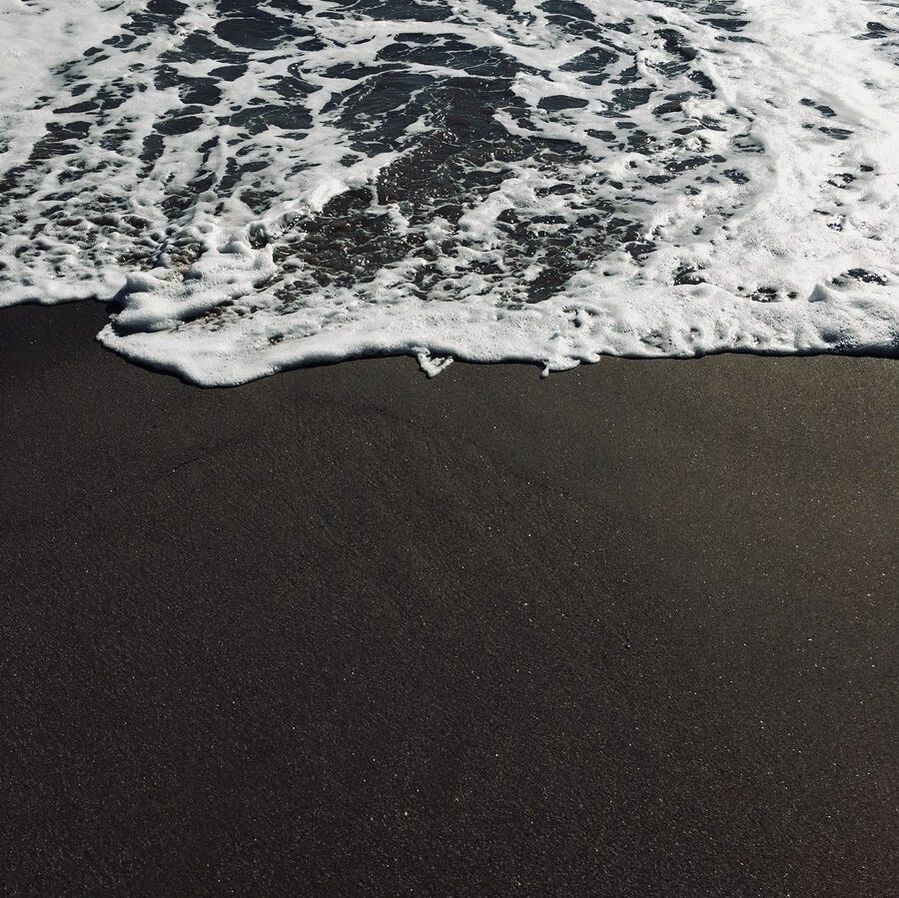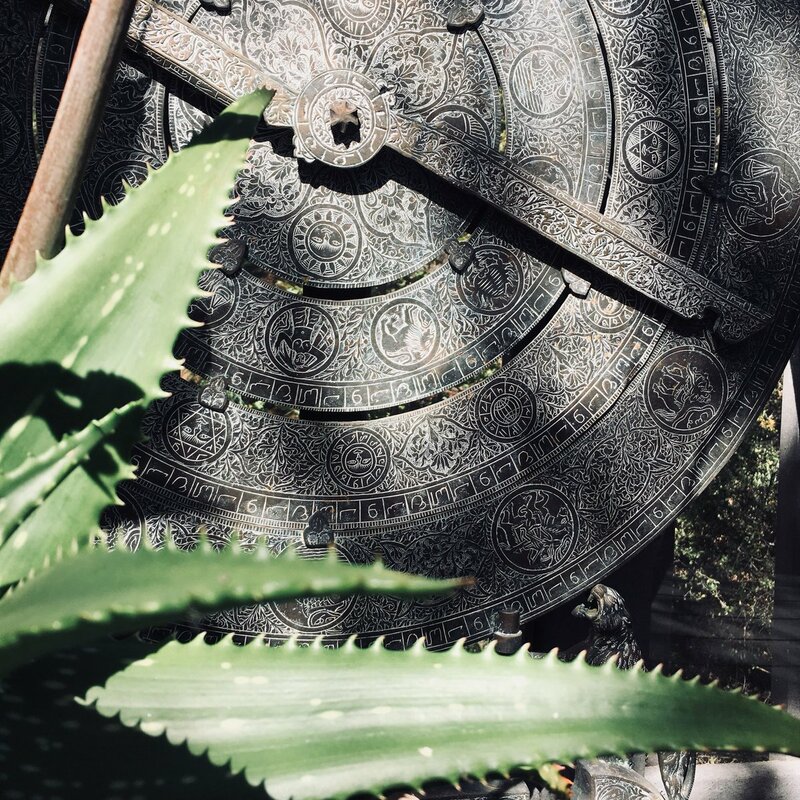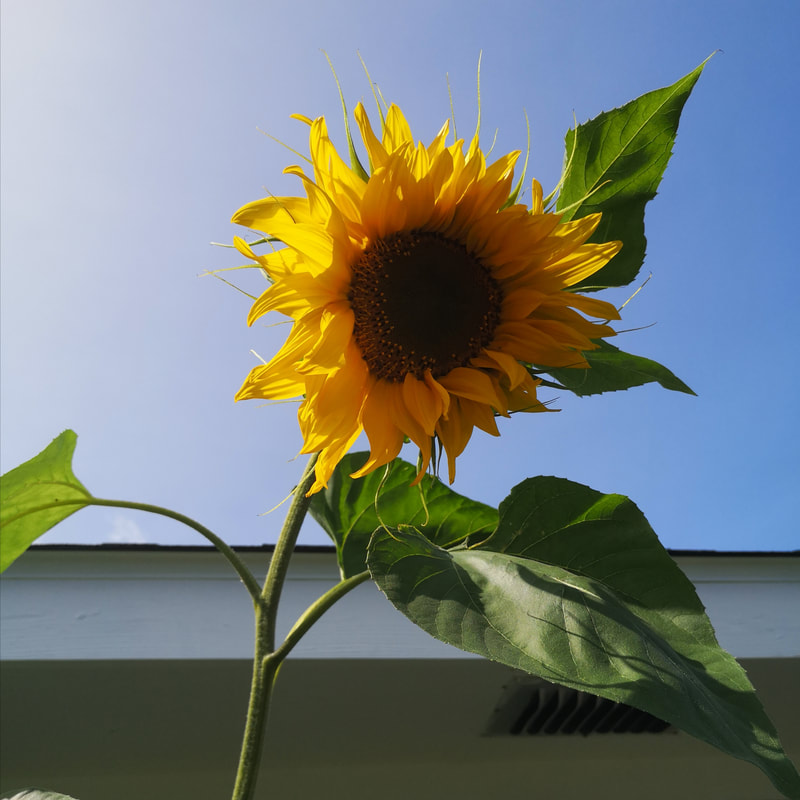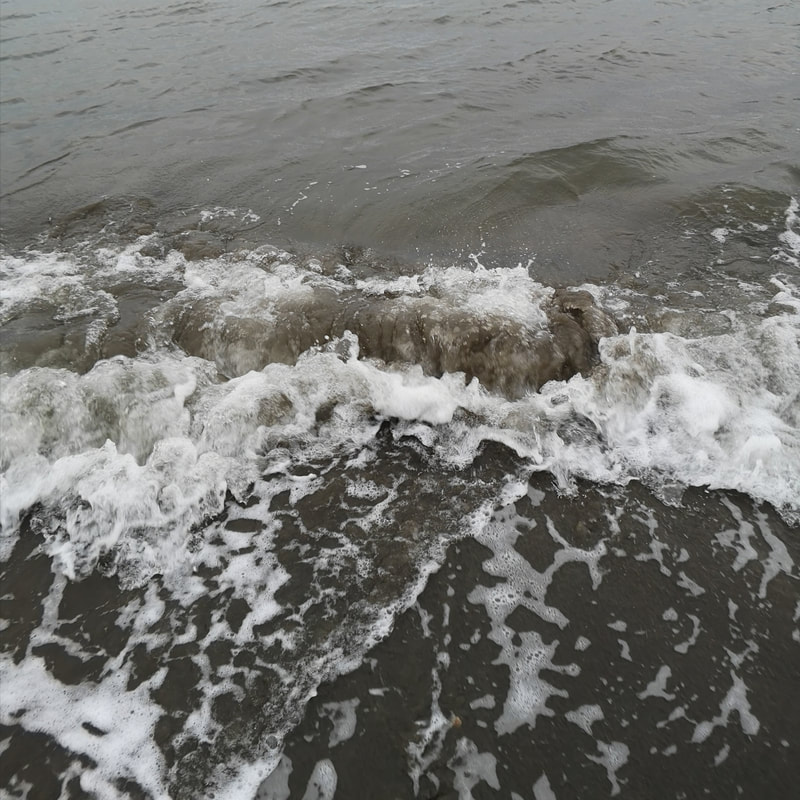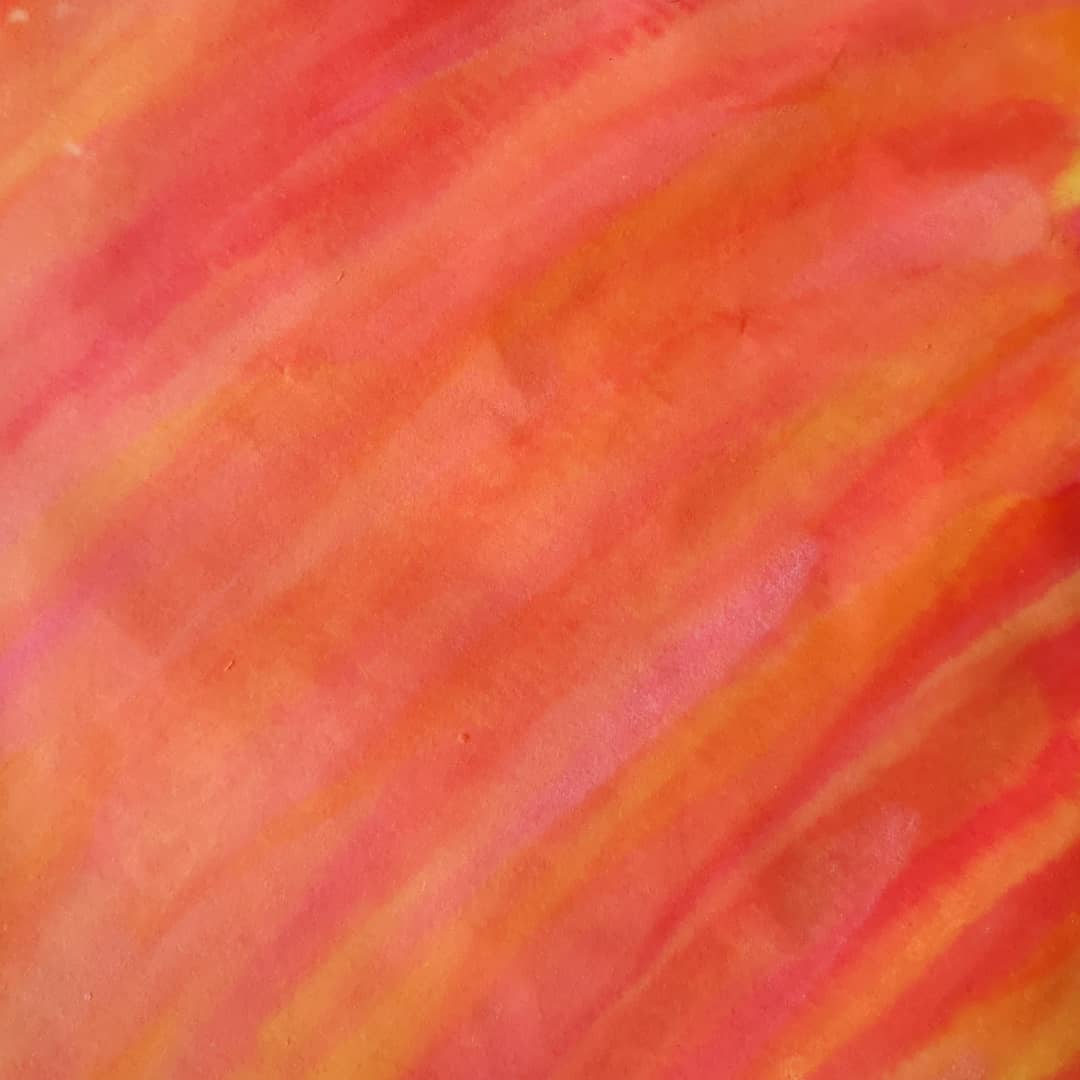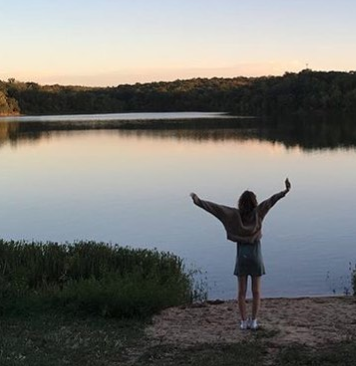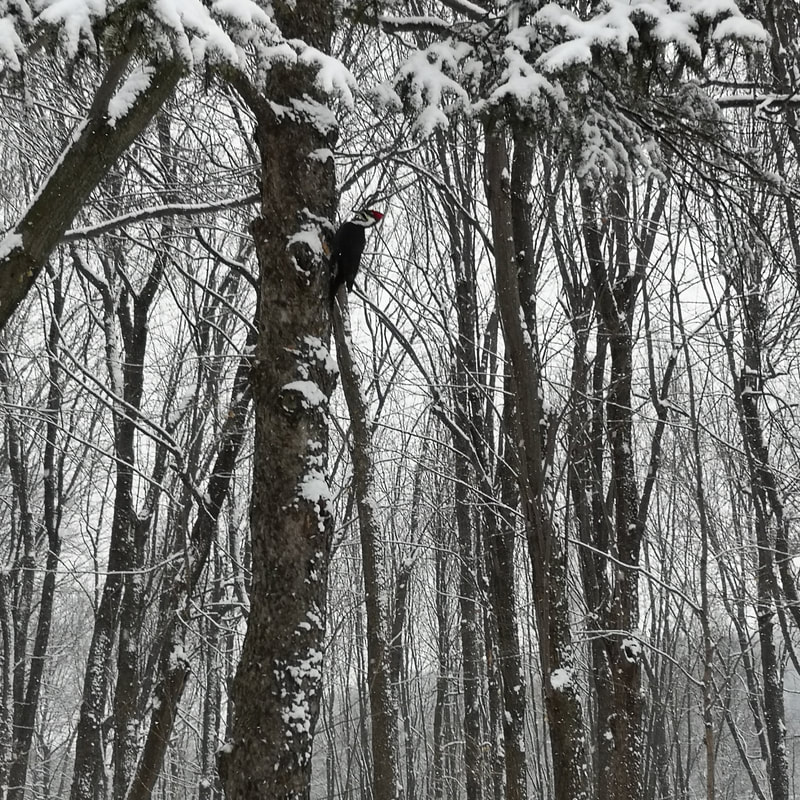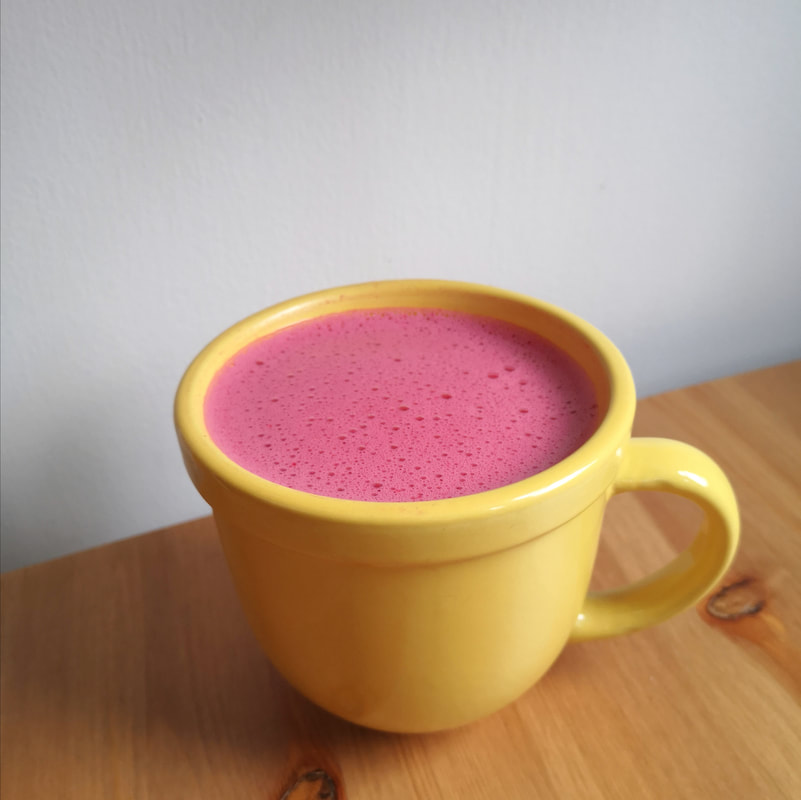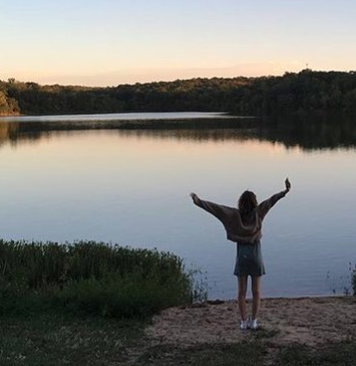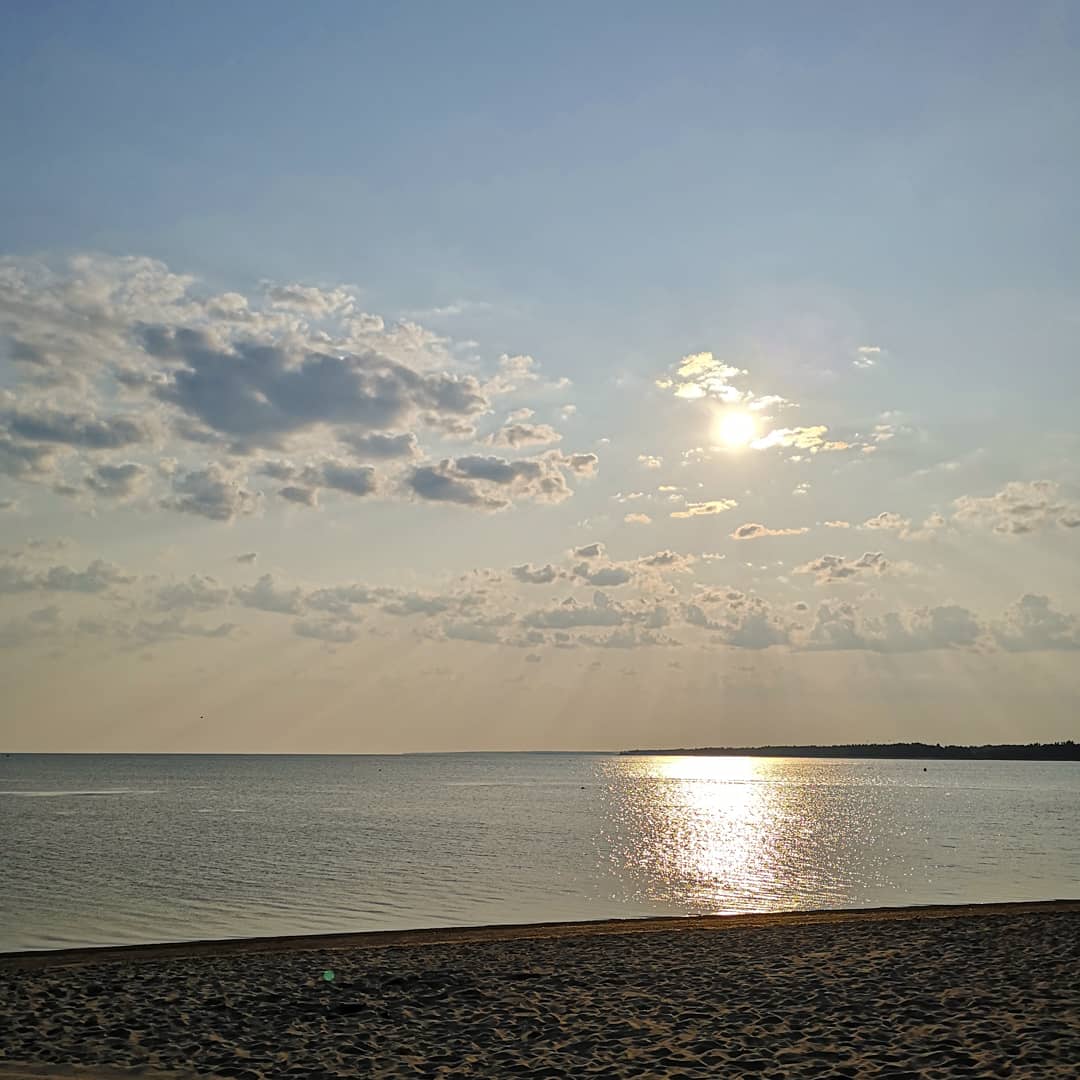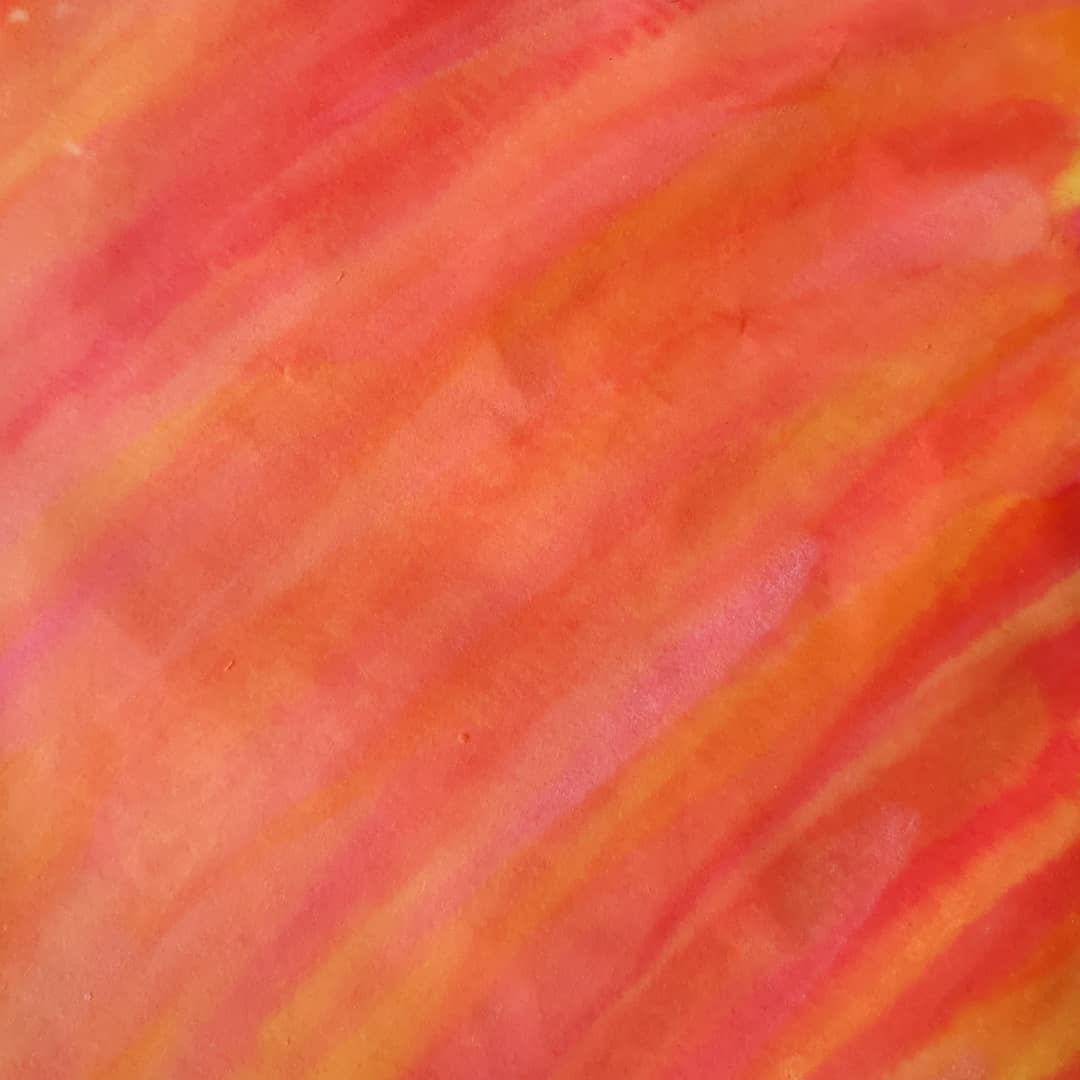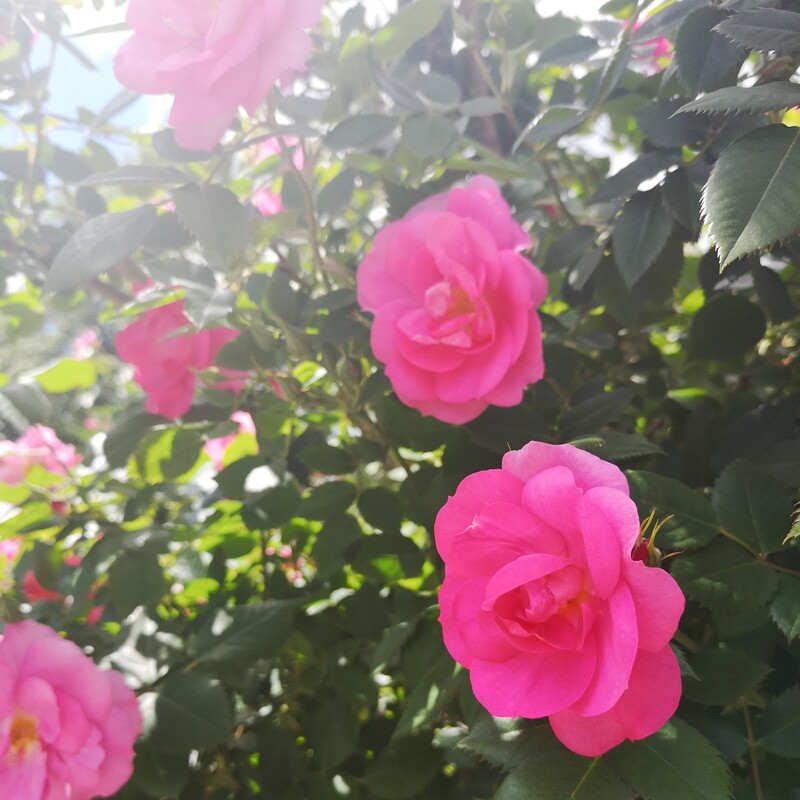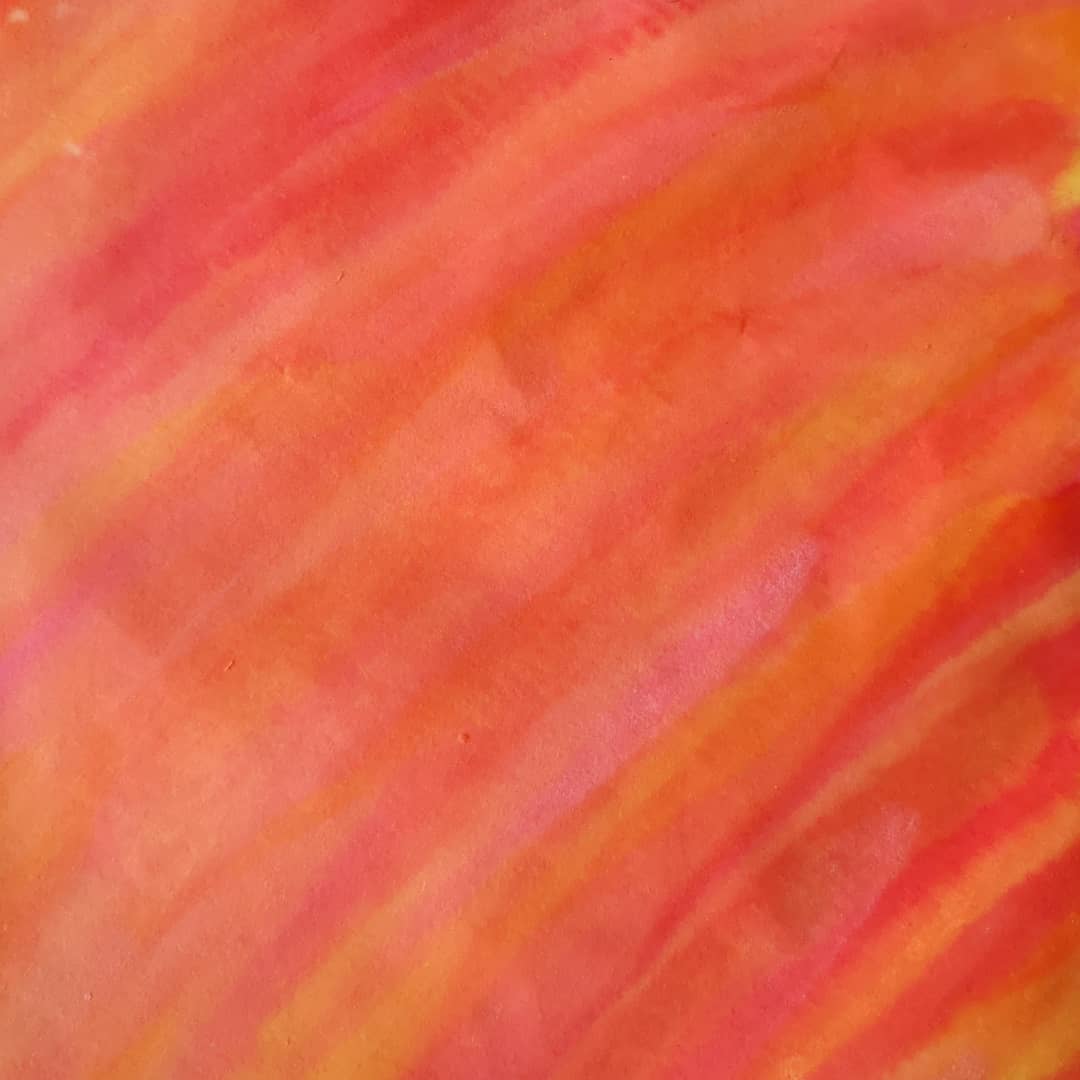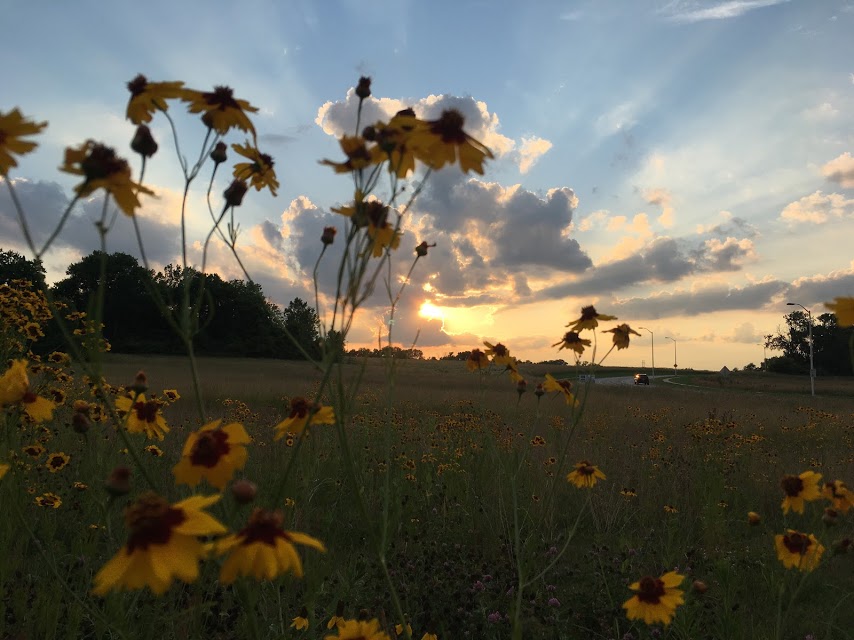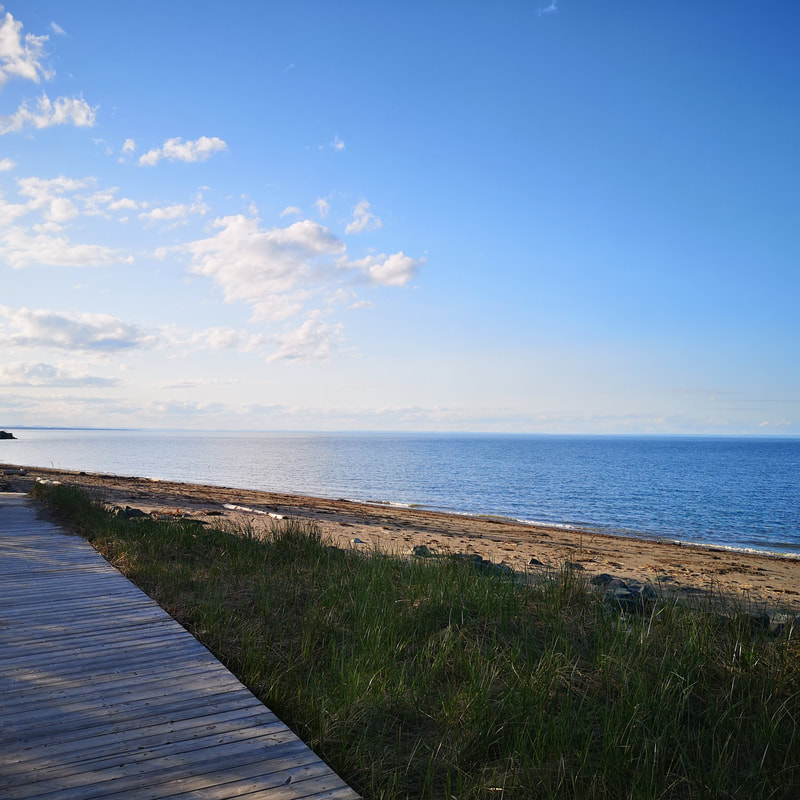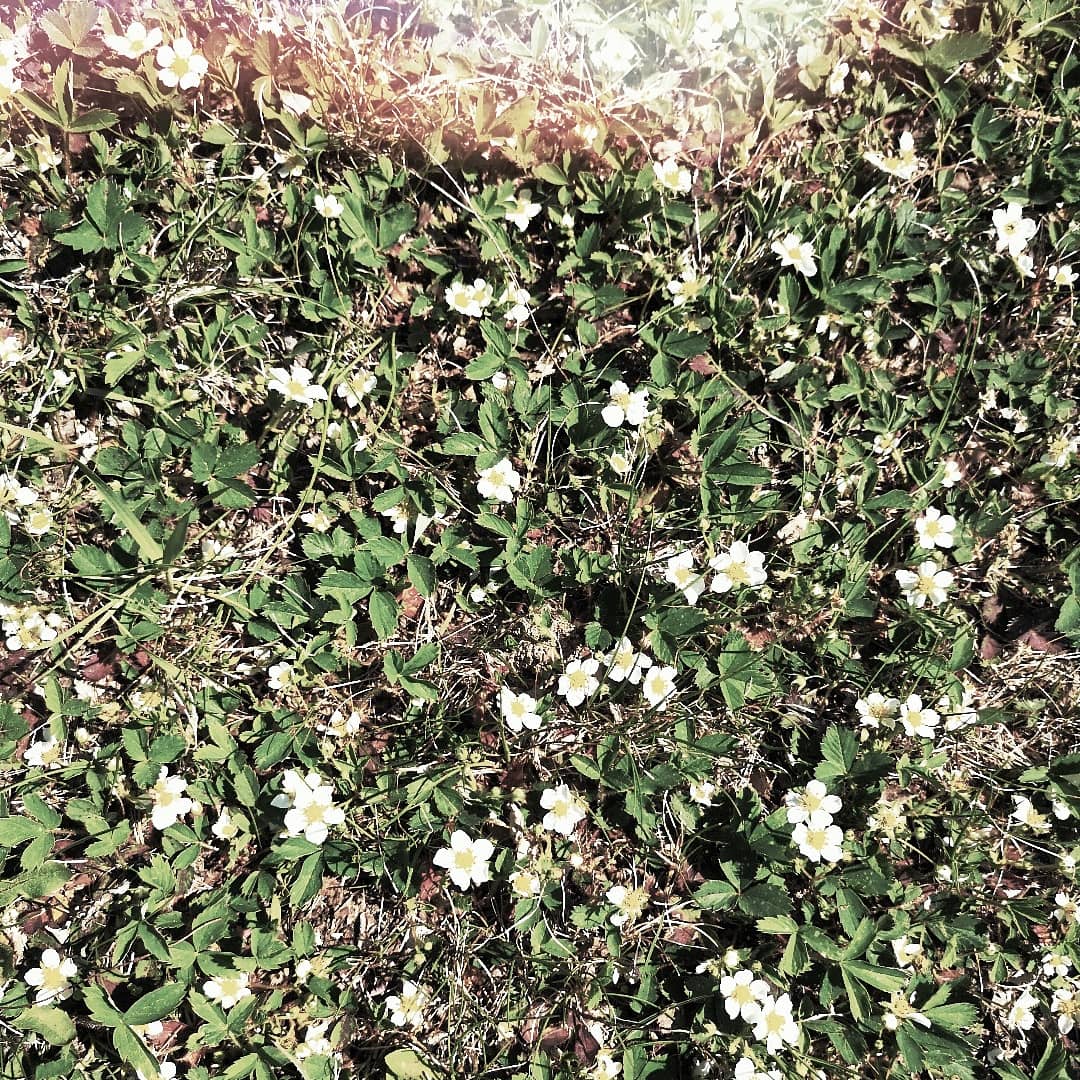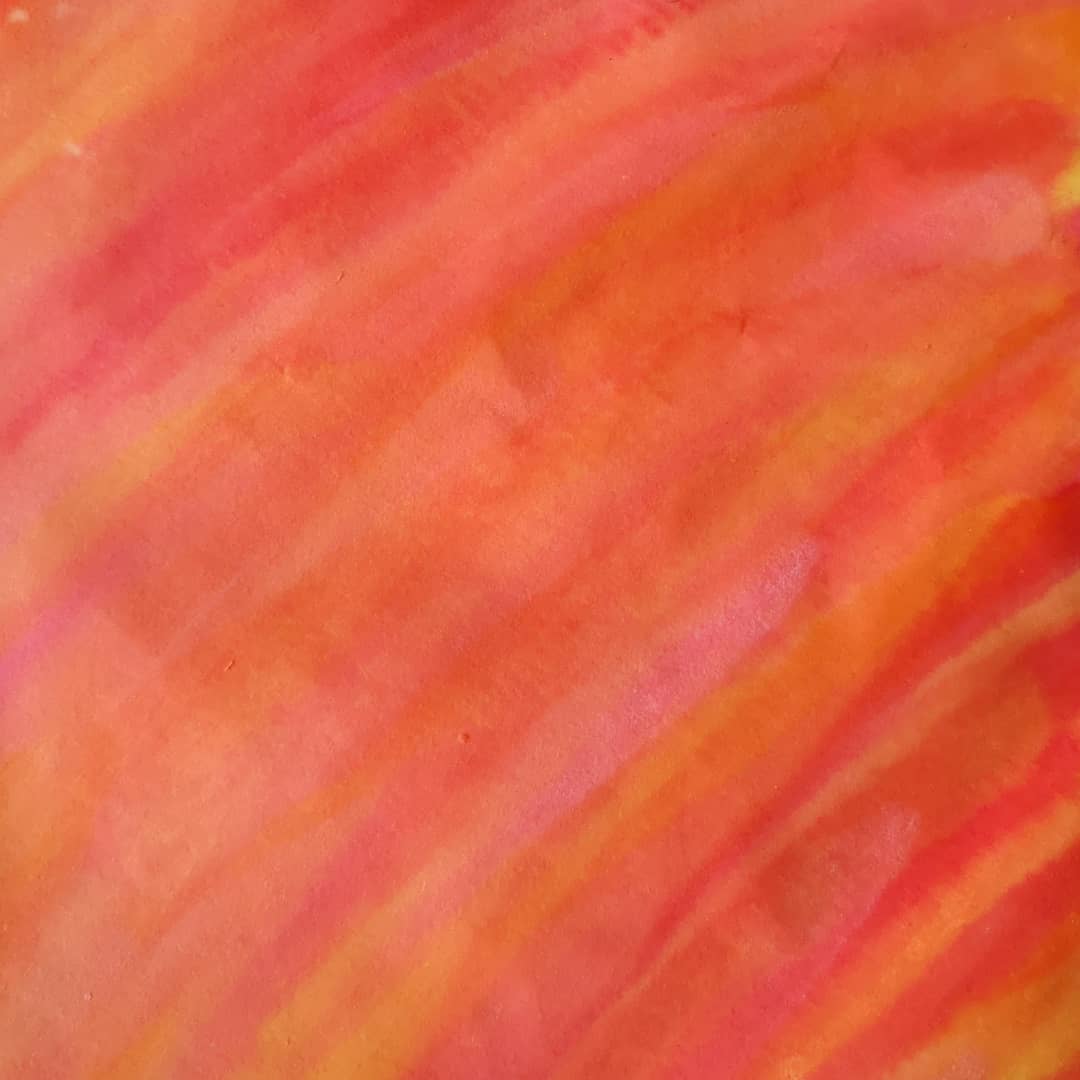|
For the better part of 2020, even before the pandemic hit and well after, I was obsessed with the myth of Icarus. You know the one: the story of the arrogant young man who, despite warnings, put on wings made of wax, flew so close to the Sun that the wax melted, fell in the sea, and died. “What if Icarus survived his fall?” I asked myself – and others around me. “What if a large wave threw him on a sandy shore? And then, coughing up water, what if he healed and learned to become soft?” I had no idea why I couldn’t let go of this thought. I just knew I needed to keep exploring it. Now, looking back on my year, I see something that surprises me: that is exactly how 2020 went for me. I put on my best pair of wings and flew straight towards the Sun, and just as I thought I was going to touch it, just as I started feeling the heat radiating on my skin, my wings gave out, and I fell straight into the sea. I used to think the myth of Icarus existed to point out the dangers of arrogance. “Hey kids, beware of hubris.” This year, I learned that arrogance has many different faces. When I flew towards the Sun, back in February, I didn’t think I was flying to my doom. I was convinced I was flying towards the one thing I’d always wanted the most, and it took nosediving in the ocean to show me that maybe I didn’t want that thing at all. The Sun, in my case, was moss-coloured and smelled like Earl Grey. It was plans of buying a house and sharing it with a friend and her cat. It was reading up on homesteads and looking at real estate listings near the coast. It was revelling in the feeling of being wanted so much that I forgot to realize I wasn’t being seen. And the Fall – the Fall was a saturated blue and tasted like oranges. It was a pandemic. It was losing my job and moving back in with my parents. It was holding on as the world seemed to crumble, as too many of my relationships seemed to crumble. But some people stayed. One dear friend swam beside me in the stormy sea, and another gave me her hand when I reached the shore. Gently, they reminded me that love still exists. As I walked the path of healing, the path of softening, the path of becoming myself, they kept me company. So, I flew towards the Sun. I fell in the sea. I almost drowned. I was thrown on the shore. I healed. I softened. I let myself in. And now, I’m at the strange point in the story where the realization that I’ve yet again outgrown my life has broken me open. I ache and I’m so grateful and I ache some more. 2020 Highlights and Lessons In February, I went to see Jojo Rabbit at the cinema, and it really struck me when one of the characters said (and I paraphrase) that to grow up is to look the tiger in the eyes and trust fearlessly. I asked myself how I could do that. How I could look the tiger in the eyes. How I could trust more wholeheartedly. In April, Florence + the Machine released Light of Love, and I listened to it hundreds of times. It turned out to be my most listened-to song of 2020, according to Spotify. There’s a lot of relatable lyrics in that song – like “I tried to get it right so badly that I always got it wrong,” which is only the story of my entire life – but another part I liked is this one: And now we are awake and it seems too much to take Looking back on my year 2020, I realize that’s exactly what I did. I looked at everything that felt like too much to take, and I didn’t look away. I kept asking myself: “Can I look the tiger in the eyes?” I tried over and over to be able to answer “yes” honestly. It astonishes me how hard I tried this year, how I kept showing up and showing up, how I continued to care. What enabled me to do this is also beautifully expressed in the song: Don’t go blindly into the dark This year really saw me deepen my dedication to cultivate acts of love, tenderness of being, and fearless trust, vulnerability, and intimacy in relationships. I tried every day to connect with and nurture my truest self and deepest longings. I ached over losses, over loneliness, and I took care of myself through it all. I boiled with rage, and I accepted that feeling. This year was terrifying and so challenging, and now I see that I did look the tiger in the eyes. I kept trying to soften. I was listening to my top 100 songs from 2020 and it struck me how soft they were… I wrote the entire tracklist in my journal (yes, I am Extra), and I just felt a wave of gratitude for these lovely creations that saw me through 2020, and for myself for choosing to listen to them so much. It astounds me how I managed to go through 2020 and still care. But then again, I realized that that’s who I am: I’m a person who cares relentlessly. It hurts me a lot of the time, but it also means that I’m a person who always shows up. I learned to show up for myself first. I learned to improve my ability to self-nurture to the point where this practice makes me feel strong and hopeful – not hopeful that life will be nice, but hopeful that I will be able to face it. And Everything Else Have I zoomed out too much? This post was so honest. At the same time, it’s my year seen from far away, the lens unfocussed just a little, just enough to make it all blend together, to make it cohesive and meaningful. I would have liked to be able to zoom in and dig, too. But words fail me. I discovered things about myself I don’t know how to label. I don’t even know how to explain them to anyone but me. Trying to put words to them, I would only be trying to describe “something incommunicable,” “something I only feel in my bones and which can only be experienced in those bones.” (to quote Franz Kafka because, well, why not) But I’ll try, ok? Here it goes. Up to my calves in saltwater, waves crashing on my shins, Aphrodite can you hear me? I found my way back to the Moon. I carry seashells in my coat pockets. I wake up early, and sometimes when the sky is clear I brave the cold and go look at the night sky. I’ve perfected my carrot cake, my cinnamon bun, my brownie, my almond croissant. I light candles and I put on opera just to feel something different, cumin and onions sizzling in the pan. When I go for walks in the forest, I feel like the fairy godmother of birds and squirrels and trees. I paint to keep my inner child happy. But sometimes when I paint it’s not for my inner child. I put Bedroom Hymns on repeat and I smash red on the canvas and still I can’t capture it: the realization that now, every one of my cells is ablaze with a power I truly believed I would never get to touch. Because it was 11:11am and I didn’t know what to wish for, I knew it was time: I had to unblock it once and for all. The primal unison of all the fibres of my being screaming that they ache to impact and be impacted, to conquer and be conquered, to claim and be claimed. Suddenly I knew exactly what I wanted, and it didn’t make anything easier. I have so much to be grateful for and I do feel it, a tremendous gratitude, when I stop to consider it. A lot is imperfect but all of it is so precious. For all the ways I’ve been supported, for everything that enabled me to write this overly long post, I’m thankful. Let’s make 2021 better.
2 Comments
every day is a new day, a new opportunity to begin again. though the new year's is a construct, it's a deeply helpful construct, one to celebrate and lean into. we have created this list to deepen your moments of reset, whether this weekend in anticipation of a new year (and decade!) or in six months, when life feels stagnant. you got this. watcho muchelleb’s youtube channel m: the ultimate get-your-life-together channel, including 20 small changes for a happier 2020, and resetting for a new year. o Rowena Tsai’s youtube channel m: rowena’s videos routinely come up in our love lists, and for good, good reasons. watch for honest, but motivating, videos on productivity, habit-making, routines, and health. reflecto a reflection practice m: resolutions can be a bit clunky for me. in this post, i discussed why this is, and included a (long) list of prompts to reflect on 2019, in order to answer the following questions about the next year: what do i want to take with me, what do i want to leave behind, and what do i want to generate? the questions include concepts like, what did i embrace this year? what did i let go of? when did i practice bravery? click through for the full list of prompts. o the year compass nadine: a printable booklet with questions and exercises that are fun and easy to answer. o we’re not really strangers’ questions to ask yourself m: because you’re worth knowing. o two new year tarot spreads m: tarot asks you to articulate what you already know or feel. plano looking ahead: setting intentions in notebooks m: the second half of my reflections post linked above includes a list of prompts to consider goal and intention setting for the next year. these are actionable, yet freeing questions, such as what topics do i want to explore, what do i hope to achieve professionally/academically, and more. here's the important part: completing the sentence: “here, where do you want to be physically, mentally, spiritually, this time in december 2020?” brainstorm, then map it again in a notebook o 8 steps to guide your 2020 goals nadine: scroll down to part two of this much-too-long post, looking forward to 2020: 4 cardinal points. don’t forget to check out the videos linked! o emotional planning 2020 worksheet m: creative independent's worksheet to ponder your 2020 mental state. one of my favorites. o 10 ways to be more conscious in a new decade m: ”One decade is about to take its final bow + another is on the horizon. Something I'd always like to be able to say is that the decade past was full of personal growth...and the one to come offers so much more to discover + embrace. Time has taught me that choosing to be a lifelong learner is life-affirming. One year...one day at a time...we keep moving forward, and it can be helpful to have some direction.”
it's december and i'm exhausted. my thinking is fuzzy and foggy most of the time. i'm pretty sure i'm in a "grip" and it's........ 🙃 very unpleasant. i do have moments where i can think clearly. i've used them to work, reflect on 2019, write this post, and ruin my christmas-morning hollandaise sauce. that's pretty much it. anyway, here's what i have come up with! it's quite a long post, which is why i've split it in two. part one is more about looking back and part two is more about looking forward! before i start: this whole post is a companion post to the collective resource list we (the sprout club team) are currently working on. stay tuned for that! it's bound to be a lot more helpful than what i'm writing in this post. looking back on 2019: 3 lessons my most-listened-to song of 2019 is border song. i listened to it all the time last summer. i could not get it out of my head. it was pretty much all i could think about. and the fact that i had no idea why i was so obsessed with it only made me more obsessed with it. obviously. but now that i'm looking back, my reason for being so obsessed with that song seems clearer. here's what i think: it's partly the way i was introduced to it, partly how deeply the lyrics of the second verse resonated with me. i never paid much attention to border song before i watched rocketman (which i talked about in the june love list and later in a post) last june. border song holds a special place in the narrative of rocketman because it's the first thing elton john and bernie taupin connect on. again, in the movie — i have no idea how it happened in real life — bernie is embrassed when he realizes that elton has seen the lyrics of border song; he never meant for anyone to see them; but elton assures him he loves them. at the risk of sounding thoroughly sappy... that's what friendship is to me. and friendship, in 2019, has been one of the most important things in my life. lesson 1: friendship is a careful and generous exchange of love friendship is seeing beauty in the same things. friendship is wanting to see the world through each other's eyes and loving what you see. friendship is a careful and generous exchange of love. friendship is sharing. friendship is reciprocal. friendship is a dance. in 2019, i've learned to deepen the intimacy of my friendships. for this, i have my two closest friends to thank. they have been patient, generous, honest, open, understanding and so much more. they have made me feel safe to be real and vulnerable with them, and that's such a wonderful, precious gift. lesson 2: if you need to quit, then quit now, for the second verse of border song: [...] i have been deceived i love those lyrics (by bernie taupin) so much. they are brilliant because they are so simple, yet so effective. to me, they are about turning your back on something that honestly, simply doesn't work for your authentic self. and there's nothing wrong with that. i used to think that quitting would hinder my self-trust because it would amount to me breaking a promise i made to myself (e.g. "i promise to myself i will work on this until it is objectively finished."). but i realized that i made a more important promise to myself, something i have to honour and prioritize above all else: i promise i will be true to myself and always have my best interests at heart. therefore, if quitting means being true to myself, it won't hinder my self-trust; on the contrary, it will strengthen it. lesson 3: treating myself like a precious object will make me strong on the topic of self-trust, here's my best practice: self-nurturing. in her book the artist's way, julia cameron recommends using this affirmation: "treating myself like a precious object will make me strong." the idea is that the more you care for and nurture yourself (like a child), the more "adult" you can behave. an integral part of self-nurturing is the morning pages practice. morning pages have been inordinately helpful to me, and because of this and so much more, i cannot recommend the artist's way (by julia cameron) enough. it doesn't matter if you are an artist or not, if you would like to be an artist or not: deepening your connection to yourself is good for everyone. looking forward to 2020: 4 cardinal points i think it's worth reiterating that i haven't been able to think clearly lately, and, because of this, it's been so difficult for me to find direction for 2020. the feeling of aimlessness only worsened my mental fogginess. if you recall, my inner compass was already broken a long time ago; i dedicated november to some "experiments in compass restoration," which yielded precious few results. but i've been able to find my 4 top values and, because there are 4 of them and i already started using the compass metaphor, i'm calling them my 4 cardinal points. so, i was lost and aimless. but then, rowena tsai came in and saved the day. i watched her video where she talks about her favourite habits out of those she implemented or tried implementing in 2019 and her video where she clarifies her purpose for 2020. these videos got me thinking. the last one i mentioned, especially, inspired the following process: (1) i started by asking myself: what are the things i did "right" in 2019? what are my 2019 "wins"? i made a list of these, as complete as possible. i included achievements as small as "putting oat milk in my tea" and as big as "landing the jobs i applied for"; achievements as specific as "doing the dishes every day for nearly 3 months" and as general as "slowing down"; every single achievement i could think of. (2) when i finished, i looked back on my list. i asked myself: of all my achievements, which do i feel the most proud of? which bring me the most satisfaction? which do i value the most? (3) i put the chosen achievements in categories with overarching themes based on why i felt proud of what i had achieved. i realized that these themes could be further boiled down to values. (4) once i had my list of most cherished values, i wrote my personal definition of each. this step is important because a value like "wisdom" is abstract and can mean vastly different things to different people. (5) for each value, i asked myself: what do i need in my life to apply this core value successfully? this list was mostly general and abstract; i came up with things like mental health, loving relationships, time to think, closeness to nature, etc. (6) i looked at my list of needs and asked myself: concretely, how do these needs manifest in my daily life? i translated them to habits and activities; i assigned each a finite daily amount of time. someone else with different needs or a different lifestyle may choose to focus on energy or money instead of time. i tried to be as realistic as possible considering health demands, financial obligations, etc. (7) i looked at my ideal daily life and i compared it with the present. i tried to figure out: why is that not my life now? what are the hurdles in my way? more specifically, i tried to identify decisions and habits that encourage or discourage the attainment of my ideal. those that encourage me to live by my values are deemed "good"; those that discourage this are deemed "bad." (8) finally, it was time to make a concrete plan for 2020! how can i promote making "good" decisions? how can i bring in and maintain "good" habits? how can i cut back on "bad" habits? muchelleb's youtube channel is full of advice to help answer these questions. this video is especially helpful and actionable; if you need more examples as a complement, i recommend watching this video as well. i'll share the result of this reflection with you. this won't necessarily be helpful, but i want to share. the nerd in me was very pleased to see that the 4 core values i chose to call "cardinal points" actually corresponded to the 4 real cardinal points and their associated symbolism! so, for symbolism's sake, i am associating my values to the real cardinal points. just please let me have my fun, thank you. east (air): wisdom i think that the number one thing i seek in life (something i don't currently have, but wish to have in a few decades) is wisdom, or understanding myself, others, life and the world as fully, as kindly, and as honestly as possible. using my reflection time to seek this understanding comes naturally to me, but i need reflection time. this means i shouldn't be too busy, because if i am constantly rushing through life, i am less likely to stop to reflect. i made a list of helpful habits that encourage me to seek wisdom. taking an hour to myself as soon as i awake in the morning (for my morning pages), and another hour right before sleep at night, is the best way to help me feel balanced enough to pursue the far, long-term goal of wisdom. south (fire): joy a lot of the achievements i felt proud of in 2019 didn't really "look" like achievements... "catching joy and delight when they fly by"? "savouring time spent with my loved ones"? "allowing myself to see how good life can be"? and yet they're some of the most fulfilling things i did all year. i brought them together under the umbrella value of joy, or savouring whatever beauty and loveliness the world has to offer. i know that it is hard for me to feel joyful when i don't have a good mental health, or when i don't spend quality time with loved ones, or when i don't have time to connect with nature. what habits or decisions encourage this? helpful habits include keeping in touch with loved ones, cooking/eating healthy, taking walks (especially in nature), etc. to enable this, it is important to make decisions that promote my wellbeing (that make space for down time, for example). west (water): creativity i've always known that i valued creativity, both artistic and scientific. this value, or cardinal point, refers to artistic creativity, or expressing myself through writing, songwriting and playlist-curating. these are my favourite channels for self-expression. for me, this is a very simple value, because as long as i make time for it, i'm good. i have quantified this time as at least 2 hours a day, and a helpful habit that enables this is getting up early (because i am most prolific in the mornings). north (earth): excellence this value is the missing link. i identified it as excellence, or completing meaningful, purposeful, positive projects that enlist my skills and work ethic, and that achieve results i feel proud of. excellence is less about habits (i don't think i could drop my work ethic if i tried) and more about good decisions. am i saying yes to projects that i find meaningful, purposeful and positive? am i saying yes to projects that enlist my skills and work ethic? am i saying yes to projects that produce results i feel proud of? and that's it! i think this post is long enough. i now leave you to your own reflections. may your 2020 teach you the lessons you are ready to learn and bring you the joy and love you are ready to accept. and may it teach you that you deserve more.
it's squash season. i've never been a squash person (except as a baby?), but this year is different. my neighbour and i decided to start splitting a "basket" of fruit and vegetables: every week, we pick up a boxful (minus the box!) of produce that's either been rejected or considered surplus in some way. this usually includes whatever's in season. so, lately, we've been getting different varieties of winter squash. in my fridge, there's a large jar of pumpkin butter — the result of what has turned out to be, by far, my most successful winter squash experiment. in the non-squash category, i got fresh beets that i had no idea what to do with until i saw this video. i made beetroot milk! i used raw beets (plural because they were really small) and, though i would definitely have needed a strainer, the result was delicious, not to mention colourfully cute. my kitchen experiments serve three purposes: they feed me, they ground me, and they give me space to play. i honestly had more fun destroying my jack o'lantern by cooking it and turning it into butter than i had when i carved my pumpkin. i'll admit my experiments don't always make for the most delectable meals (like when i thought it was a good idea to put grapefruit in my hot oats, or to eat my spaghetti squash with only nutritional yeast and a pinch of salt), but i am discovering the fun of doing something "just to see what happens." joy hides in strange places. i want to be someone who sees it and enjoys it when it flies by. for example, i have this tin of pumpkin chai tea that smells so good that it makes me smile, automatically and uncontrollably, whenever i catch a whiff of it. it doesn't matter if i'm having a good day or not. these little things anchor me. without them, i would feel like i am floating aimlessly, because these days, i don't have anything near the clear overview of Life i crave and seek. my compass is broken, and it took me a bit too long to realize it and take down my sails. i lowered my anchor and now, i'm trying to fix my compass. "trying to fix my compass" means that i'm delaying important decision-making until the end of the month; in other words, i'm trying to use the month of november to "gather data" i will later analyze. kind of like in the scientific method. actually, who am i kidding? exactly like in the scientific method. you can take the nerd out of science, but you cannot take science out of the nerd. and so, in parallel with my kitchen experiments, i conduct other experiments i take more seriously. i probably take them too seriously. the overarching goal of these more structured experiments is to find the constants: the components of the compass that never change. hopefully, with these constants, i'll be closer to having a compass that works. i'll be honest: when i say "constants," i am for the most part referring to personality types. i am trying to have a more solid understanding of my enneagram and myers-briggs* personality types, because according to these theories, a person's personality type doesn't change; rather, it is a flexible model that manifests differently in different people, contexts and life stages. i love the enneagram and myers-briggs systems. i know some people dislike personality typing in general, because they consider it rigid or limiting, but after studying different systems for some years, i have learned that a personality type, when the system is properly conceived, is designed to be fluid, adaptive and growth-orienting. in other words, to borrow ian morgan cron's image (which he applies to the enneagram), the point of knowing our personality type isn't to put ourselves in a box with a label on it; it's to find a way out of the box we've inadvertently stuck ourselves in. personality types aren't labels, they're maps. these maps — provided we've got the ones that truly fit us best — point us to our highest potential. please note that what i'm referring to is the mbti system with its jungian basis (see it presented as the car model or on one of my favourites mbti blogs) and the enneagram in its many forms, including what i would call the classic enneagram, the instinctual subtypes (as best explained by beatrice chestnut, in my opinion) and, to a lesser extent, the tritypes (as developed by katherine fauvre). i have been wrong about my personality types more often than i've been right. in fact, i don't even know if i'm currently right, and besides, the whole concept of "being right" hinges on the assumption that personality typing theory works. (to better understand what the concept of "theory" means, i recommend this ted-ed video or its blog post version. not that personality typing is particularly scientific, but i think it helps to remember that it's not a law.) obviously, that's the assumption i'm running with: the enneagram and mbti personality typing theories work, and if i find my correct type in each system and interpret it correctly, i will have valuable advice to guide my self-growth. so, this is what i'm doing this november: experimenting. am i this myers-briggs type? am i this enneagram type? how will i enjoy doing nanowrimo? what in the world can i do with an acorn squash? why am i feeling aimless? how does this or that hypothesis fare in the real world? and i will try my best to remember — and i apologize for the wildly random metaphor — that taking time to focus on improving the plough is the opposite of neglecting the field. what about you? what's your november like? do you have any good acorn squash recipes to share? *mbti and myers-briggs are reserved and in no way am i a certified practicioner. therefore, everything i write about the mbti should be taken as nothing more than an opinion.
i have a (relatively) new nightly ritual: i stand at the sink, facing the old glass block window, and i wash the day's dishes. it's a gift i make every night to my tomorrow-morning self. in return, i get to use that lavender dishsoap i like so much. the other night, like many nights before, i had both hands plunged in warm soapy water. my fingers brushed cutlery and damp crumbs as the lavender-scented bubbles hugged my forearms. i cried. again. i've been crying a lot in the past month or so. this, i thought to myself then, is an image of growth. i've been crying so much because my life feels like a mess, like a shapeless heap of wooden sticks after i just removed one too many pieces of the Jenga tower. i removed the cruel-to-myself piece. i removed the unable-to-voice-my-expectations piece. i removed the unable-to-reach-for-support piece. i removed the skewed-priorities piece. i've been getting to know myself better. i've been learning to express myself and connect with loved ones better. and i make mistakes and i slide backward and i do a lot of crying. it's all growth. it's hard when you realize your life is not the right size for you anymore. it means you need to change a lot of your surroundings and activities. sometimes change is soft, gentle and heartwarming, like when i'm done doing the dishes at night and i mix warm oat milk, cacao powder and honey in a carefully-chosen cup, and i light candles in the living room. other times, though, change is loud, sudden and painful. the Jenga tower falls. i quit school. let's not talk about that. instead, let's talk about how i have more energy to dedicate to reading. i've been reading J.D. Salinger's Raise High the Roof Beam, Carpenters and Seymour: An Introduction for the first time. i picked that book to read because it was a gift from my sister, who bought it for me years ago because i'd read and liked The Catcher in the Rye years before that, and it spent a long time sitting on my bookshelf. Raise High the Roof Beam, Carpenters, especially, felt rejuvenating to read. it made me laugh so much, and everything was so vivid, and by the time (very mild spoiler) the narrator started reading his older brother Seymour's diary, i couldn't close the book. in a poignant, painful way, i saw myself in Seymour (please note i hadn't read Seymour: An Introduction yet), but i couldn't understand how he could be so magnanimous and compassionate. for example, Seymour's girlfriend's mother insists on trying to psychoanalyze Seymour. she goes so far as to invite her psychoanalyst to dinner with Seymour and her family. i don't know how that sort of thing went in 1942, but it would never fly in 2019 with me. in his diary, Seymour discusses how he thinks his brother (the narrator of the story), would view his girlfriend Muriel's mother. He would disapprove of Muriel's mother, too. She's an irritating, opinionated woman, a type [he] can't stand. I don't think he could see her for what she is. A person deprived, for life, of any understanding or taste for the main current of poetry that flows through things, all things. She might as well be dead, and yet she goes on living, [...] plotting for Muriel's health and prosperity. I love her. I find her unimaginably brave. that quote hit me hard. i guess i read it at the right time in my life. it made me think. in a few notebooks, i wrote "i want to be so full of love that i see it in everything." it's a work in progress. sometimes i feel more like the child i saw at the breakfast restaurant on canadian thanksgiving, last monday. a girl, maybe 7 or 8 years old, with quirky pink glasses, slid in the booth next to mine with her parents. i noticed her because she was pouting, frowning. soon i noticed her again because she angrily slammed aside the page she had been drawing on. she grumbled: "it's not working." the page was glossy: i imagine it was some kind of durable plastified paper you can use markers on and later erase, but i might be wrong. i'm not exactly up-to-date on popular art supplies for kids these days. i brought my attention back to the discussion at my booth, but again, i noticed the little girl. from her backpack, she slid out a notebook filled with drawings. we — the dreamers — the ones who carry notebooks when only a phone would do — that little girl, me, maybe you too — we tend to feel disappointed when what we put on the pages of our notebook doesn't match what's in our head. something that struck me in the 7-year-old artist i saw at the breakfast restaurant that day was that between tantrums, while she was drawing, there was a small content smile on her face. drawing made her happy — until it made her throw tantrums. but mostly, i think drawing made her happy. i saw it in the way she took her notebook out of her backpack, with love and care. that's how i want to go on. because there will be tantrums. but if there's also contentment, love and care, maybe it won't be so bad.
There is nothing more humiliating to me than my own desires. Nothing that makes me hate myself more than being burdensome and less than self-sufficient...I had arrived in my thirties believing that to need things from others made you weak. I think this is true for lots of people but I think it is especially true for women. When men desire things they are “passionate.” When they feel they have not received something they need they are “deprived,” or even “emasculated,” and given permission for all sorts of behavior. But when a woman needs she is needy. She is meant to contain within her own self everything necessary to be happy. To paraphrase, the crane wife stays up all night to pluck out her feathers, to hide that she is a bird, a creature both capable of flight and requiring care. "To keep becoming a woman is so much self erasing work. She never sleeps. She plucks out all her feathers, one by one." I know I am not the only one to whisper, "Ope," embarrassed for being so recognized. So what do we do with this vulnerability, with this deep want? I see two paths for myself: first to unsurface the origin stories for this sense of shame and responsibility, the stories we collectively share, and the ones that are my own, and to learn to thirst, to learn to articulate desires. First of all though, we gotta realize that this is okay... Contentedness is a means to appreciate, but does not discount desire and drive. That desire is taboo, in the truest sense of the word: For example, I wrote earlier about Polynesida, and how the word "taboo" comes from "tupua" (or "tapu"), which means menstruation, but the most common translation of "tapu" is actually "sacred." So there it is. Yeah, we know desire, and expressing desire, can feel taboo- silly and wrong and shameful and unnecessary and too much- but we gotta remember that the word also means sacred. Want is not evil. It can be sacred. Desire can show us a path to who we want to be. Desire can drive us to pleasure and love and gratitude. But how do I get there? It is all unlearning and learning again. Where am I ashamed? Why? Where can I steep myself in materials that give me space to want and articulate such desires? I am not asking you to delve into manifestation... only to acclimate yourself to who you are, and where you want to go. You usually aren't a danger to yourself. Hear what you want. Dig into it. Without further ado, following is a list for learning to desire, and to speak. Resources for Desire
Go in peace x
M summer is over, and i think it's time i break my silence here and post something. i was caught in an inner whirlwind of healing. at the time, i couldn't fully make sense of what was happening. i couldn't see the overarching theme in my growth. all i knew was that come the end of the summer, my nesting instincts (which i hadn't known i even had) were kicking in at full force. suddenly, i knew exactly what kind of "nest" i wanted for myself. i've been working on myself with much dedication for a long time. i trace it back to three years ago, almost day for day. i was 24. i'd spent the three years before that as a shell. i have almost no memories of the years i was 21, 22 and 23. the other day, i saw a picture of myself from that period and i literally did not recognize myself. i squinted and said: "who... what... is that me? i had that hair?" yesterday, for no discernable reason, a memory from that time popped in my head: i remembered the lemon cookies i used to make when i was 22. i remembered the sweet lemony taste and the perfectly soft and chewy texture. honestly, i think that was my first time remembering something from those three years that i didn't want to burn out of my brain. i remember loving those cookies so much because they felt like the one thing i could do right. i felt powerless — most days, all i ate was peanut butter on toast and all i did was lie on the couch and watch the sky darken — but some days i could manage those cookies. for a few minutes the cookies made my roommates happy and that was the best i could ask for. all that and much more was over by the time i turned 24. the question "why?" was plaguing me, as it had over the three years prior. why? why had all that happened to me? i set forth on my journey to try to find an answer, because without an answer, how could i know for sure that it wouldn't happen again? anyway, fast forward. 24 to 27, three years of zealous introspection. i studied anything that might help explain my experience of shellness: several personality typing systems; possible alternate/additional diagnoses; queer identities; different topics in fields such as psychology, personal development and spirituality... results were few, far in between, and often short-lived. i think i considered 9 different myers-briggs types and 6 different enneagram types, among other things. it was a confusing time. in 2019, and especially the past summer, i started seeing results at a much higher pace. using the enneagram for a bit because it's easierturns out....... i'm a 4.* that's enneagram talk. i don't want to start explaining the enneagram or even guiding you towards resources because whenever i start i have a hard time stopping. but i'll try to condense it infinitely: the enneagram splits people in 9 types (numbered arbitrarily 1 to 9) according to the main threat they perceived in their environment as children and how they managed to cope with that threat. "4" is a type. the most important thing i absolutely want to stress to anyone reading about the enneagram is this: you may get the impression that the enneagram is a self-flagellation session that makes you realize what a terrible person you are. please allow me to shift your perspective on this: all enneagram types embody equally good ways for the young psyche to protect itself from perceived threats in the environment. we all have an enneagram type. that's good because it means we were brave enough to find ways to protect ourselves and make it to adulthood. however, these protections inevitably backfire in adulthood. all of them. there's no type that backfires more or less than the others. learning about your enneagram type is helpful because it helps you say: thank you, subconscious, for protecting me the best you could; now, it's my turn, and i will protect myself in healthier ways that will allow me to grow and become a better person. that's so important to understand. we all hate our enneagram types at first (if you don't, you're probably mistyped), but it's important to grow past that and find space for gratefulness and acceptance. now, type 4. 4s, when they were hurt in childhood, used the explanation "i was hurt because i am bad and unlovable" rather than see the world around them as mean-spirited. this way, 4s developed a vision of themselves as impossible to love and lacking in everything. nothing can ever redeem them. because they believe themselves to be unlovable, 4s both fear being abandoned and somehow unconsciously want to be abandoned (because it will confirm their worldview). 4s put a lot of emphasis on emotions: their own and others'. they daydream of happiness, and they envy others, especially those with "simple" lives, but they are so convinced that they are too broken or complicated to be happy that they sabotage their wellbeing in different ways. something that clued me in on the possibility that i might be a 4 was when i got the feedback from someone who knows me well that i was (wrongly) convinced i wasn't important to other people and that i was never satisfied. the way 4s experience these patterns in everyday life changes vastly from one instinctual subtype to the next. i've heard them described as the glad 4 (self-preservation subtype, sp4), the sad 4 (social subtype, so4) and the mad 4 (sexual subtype, sx4). for example, imagine three toddlers who want to get their needs met by their parent. the first one behaves as well as possible and hopes this will attract the attention, love and approval of their parent (sp4). the second one starts crying and talking about how much they are hurting and lacking (so4). the third one throws a tantrum about how everything is unfair and it's all their parent's fault (sx4). even as adults, 4s have a hard time directly asking for help and, especially, for love. instead, they are consumed by envy, and they end up acting out that envy by masochistically enduring (sp4), vocally complaining (so4) or angrily demanding (sx4). of course, in real life, most people aren't just one subtype. they have a dominant subtype, and a second one, and one they use the least. my conclusion is that i am a sp4, though i do tend to reach for anger like sx4s from time to time.* (note: my main/favourite source of enneagram information is The Complete Enneagram by Beatrice Chestnut.) end of enneagram talkironically (or not so ironically), what helped me find my enneagram type in the end was to focus on healing for a while without thinking about the enneagram too closely. i did my introspection challenge as well as the 12-week challenge presented by Julia Cameron in her book The Artist's Way. that's what i've been doing all summer. after a while of this introspective healing, i reflected on what was helping me the most. by analyzing these helpful techniques/paradigms, i kind of reverse-engineered what i had started out most needing. the most helpful change i have instated in my journey is self-nurturing, hands down. unsurprisingly, it turns out that not asking for support is the best way to not get support! it also turns out that beating yourself up all the time about everything is helpful in absolutely zero ways. halfway through The Artist's Way, Julia Cameron presents the affirmation: "treating myself like a precious object will make me strong." self-nurturing means i am taking over the role of being my own parent. for a long time, the idea of having to "parent" myself made me feel sad and lonely. now, it feels comforting because i trust myself more. it's honestly so comforting to know you have someone there who will always give you what you need. like, i need to take a day off? i take a day off. i need warm tea with oat milk and honey? guess what, i have warm tea with oat milk and honey. i need to feel like my emotions are valid? surprise, i validate my emotions. my cluttered kitchen counter makes me feel overwhelmed? i do the dishes and, not thirty minutes later, i can breathe easier. i'm so thankful for the care and support my parents have provided me with, and for what they still provide me with. but no matter how hard they tried, they weren't perfect. i understand why i didn't receive some fundamental forms of care, and i forgive my parents — and myself — for that. now, it's my job to "parent" myself. i can give myself whatever forms of care i need. the best part? i don't even have to ask. that being said, learning to ask for support is still important. it's something i'm in the process of doing. i am trying to cultivate friendships where we both welcome the other when they ask for support. i used to recoil from self-nurturing for different reasons, the most important of which being: i thought self-nurturing was selfish. here's what trying out self-nurturing taught me: true self-nurturing is the least selfish thing one can possibly do. the more i nurture myself, the more caring and loving i am towards other people and the world. i get less angry. i listen more. i am more present. i adopt more eco-friendly habits. i love without worrying that i will not get love back. asking for support has a similar consequence: the more i ask for support, the more comfortable others seem to be asking me for support. there is simply more love to go around. maybe it's no coincidence that the memory of the lemon cookies popped in my head yesterday. because that's love, too. i made them because i loved them. because my roommates loved them and because i loved my roommates. because for a while something was stronger than hopelessness. love, my friends. it's abundant and you deserve it. *edit (2019/11/11): i am no longer under the impression that i'm a 4. regardless of whether or not i am a 4, everything else i wrote here still stands. i especially want to repeat how important i think self-nurturing is! whatever my enneagram type is, self-nurturing changed my life.
what is authenticity? when we create ourselves, do we become more or less authentic? this question has been low-key plaguing me ever since i first heard about authenticity. i was 10. in grade 5, i was one of the oldest kids in my elementary school and i made sure i was a soloist in the school choir. i kind of wanted to be a star. avril lavigne's debut album, let go, was pretty new and i listened to it on repeat. i thought it was the height of coolness. it resonated so much with me. sometimes i remember myself at 10 years old singing "i might've put up with that when i was 14 and a little more green" with all the conviction in the world and i smile. bless 10-year-olds. when i was 10, there was this big televised singing competition that everyone really loved to watch in my community because one of the most popular contestants was from a small town nearby. one day, i asked my mother why this contestant was so popular. "people find him authentic," she said. i had never heard or read that term before, so she explained what it meant: "people who are authentic are their real selves. they don't change for others." i was preoccupied. why did the viewers think this contestant was more authentic than the others? i could understand why his mannerisms on a surface level seemed authentic: he was provincial, rugged and rustic, with a thick accent and manners every bit appropriate to the fisherman he'd been before the competition. but why was this authentic? and why was the other contestants' artistic expression not perceived as authentic? the thing is, this contestant acted just like every man in my community. i asked myself if authenticity was just playing "the roles we were born to fill" (this is a quote from mona lisa smile, a movie that is about authenticity, if you really think about it). this seemed wrong to me. acting like every girl in my community sure didn't sound like an authentic way for me to be. now, i look back and i understand that it wasn't really authenticity that seduced viewers, but the embodiment of a stereotype that suited everyone. people from urban centres watched and this stereotype comforted them because it allowed them to pin down the people of my community --- to put us in a box and not have to try to understand our differences. people from my community watched and this stereotype also comforted them. i think it allowed us to live vicariously through the contestant while not changing anything or confronting anything about ourselves. by staying small and comfortable. there is this expression in french circles in canada (i have never heard it in the particular community i grew up in, but the sentiment was there): "when we're born for a small loaf of bread..." (quand on est né pour un petit pain) it implies that we are born for small things in this life and that to hope or ask or wish or even work for more is foolish and messing with the natural order of things. in many ways, it's, i guess, a knee-jerk reaction to the "american dream." i call the pervasive idea that we are born for small things "small loaf syndrome" (i don't think i invented this, but i can't find a source, so maybe i did?). i've always thought that small loaf syndrome was ridiculous and that i didn't catch it. in my last therapy session, i talked about seeing the movie rocketman several times (don't act surprised). "why do you think you liked it so much?" my therapist asked. "do you think it's because you're an artist?" i was gobsmacked. how dare she call me an artist? this thought painfully echoed a thought at the core of my self-talk: how dare you call yourself an artist? and a sentiment i perceived from my entourage: how dare you be artistic? i remember when i was a teenager and dreaming of moving to the big city i live in now seemed like dreaming of a big loaf. how romantic and exciting the city seemed. i had all these fantasies of city life in which i realize now, in hindsight, i was an artist in every way but my occupation, which was always something sensible. but didn't i want to be an artist when i was 10? yes. indeed. i wanted to be a star, i think were my exact words. later, in middle school, i discovered classical music and i wanted to become a musician. i wrote a few songs, too, and i arranged let it be for a wind quintet, but i didn't think anything of it. then, high school came around and with it a new music teacher, one who seemed to be adamant to sap the very art and fun from all music-making, leaving it dry, drab and technical. this music teacher had an electronic metronome she would plug into gigantic speakers. she would turn the volume up as loud as she could. then, with the metronome clacking in our ears, she would lean over the first row of chairs clapping her hands with what i perceived to be barely contained violence. i sat in the first row. it's like the metronome and the handclaps yanked bits of fun from us students with every clack. as a person who is highly sensitive to sound, emotional atmospheres and heat especially (the music classroom was always hot; it trapped the heat in and then we kids were so stressed we were emanating heat like we were lost in the arctic), i left every rehearsal exhausted and grumpy. this is kind of what brought me to tears when i first watched rocketman. the entire story is extremely sad, don't get me wrong, but here's what made me cry (i wouldn't consider it spoiler-y): when elton is about 7 (?), he starts getting into classical music. there is a scene showing him staying up past bedtime reading a score (it looks like an orchestra conductor score but i'm not 100% sure). he imagines himself conducting an orchestra playing rocket man. he imagines the orchestra. the musicians are all looking at him so earnestly. almost lovingly. some of them are even smiling at him. then, elton gets to the piano. this is a piano concerto and he's the star. this scene is so joyful and pure. it shows us that this is what music originally was to elton: a fun, second-nature form of expression. later in the movie, it's made clear that as addiction and other mental health issues start taking centre stage, fun disappears from music-making. there are all these montages of elton john performing and looking absolutely miserable. when elton hits rock bottom, his 7-year-old self appears again with the melody to rocket man. it's beautiful! anyway. it just really moved me to see that joy and see it slowly lost. it reflected my experiences in a way i didn't understand right away. i think that knowing and embracing what brings us joy is a big part of authenticity. maybe that's the way in which the contestant on the televised singing competition was actually authentic. he knew music brought him joy. so, he dared. i don't want to pretend to have all the answers, and especially not to the question "what is authenticity?" discovering personal authenticity is a long, thrilling journey. i think my 30-day introspection challenge, over a few days ago, really helped me travel along that path. i want to pursue joy. i want to pursue a large loaf of chocolate-chip bread sprinkled with sugar crystals. i want to pursue myself.
Today marks the solstice, no matter where you live. Perhaps today is the longest day of the year (here it's ultra cloudy and dark, ironically enough), or tonight the the longest night for you (hello, southern hemisphere.) Regardless, congratulations, you've made it through have the year. It's a big deal. Try not to panic at the thought! That is exactly what I am good at... I keep drawing the oracle card "get out of your own way" and wondering, "What the heck does that even mean? How am I supposed to do that? I am me." But after seeing it over and over, and then coming across the prayer, May I learn to make good out of what I'm given, rather than only make sense of it, I suddenly understood. I am so good at panic, or, at least, concern. See, I love growth. I want to never be stagnant, preferring a constant process for becoming closer to the person I was created to be. And to do this, I often spend a lot of time reading books or blogs or quotes or psychology studies. I love reading/thinking about theology and politics, and how these things intertwine. I truly am a 6w5 (for those who don't speak enneagram, I mean that I do worry, but exploration of thought and fact appeals to me. Study appeals to me as a way to lay a solid foundation of truth to stand on. I think if I can read enough truth, I can build my own magic road map to success.) who often thinks, "I have to know it all before I begin to practice any of it," and dwell on all the ways I need to "get better." Questions I think a lot about include "Where do I fall short?" and "Where can I improve?" and "Who am I not that I want to be?" I can tell you this pretty confidently: it's only partially helpful, and it's anxiety and depression inducing. Our self-help happy society tells us often that we need to confront our darknesses, and go deep. But honestly? I can go deep- and then get lost so easily. I can know all about what I hate about myself and what has hurt me and what is weighing on me and what doesn't measure up to standards. I can do that all day. I can also stay in bed all day and cry in the bathroom. There comes a point that we have looked back enough, and now, we need to look forward. I can see all my problems, but who do I want to heal into? I can't just eliminate all things I hate about myself... they have to be replaced with something. That, and hating myself really isn't helpful. It makes life feel worthless. I'm understanding it now... that getting out of my own way can mean not standing in the middle of the road staring down the parts of myself I hate. Getting out of my own way could be standing aside to allow the good parts of myself to thrive, and to overgrow some of the shit. But how? With this in mind, here you are, at the solstice. You made it half through the year. Enjoy the sunlight, if you have it. Enjoy life. But also take a moment to enjoy yourself and how far you have come. Yes. Look back. Make a list of all you've accomplished. Look back at your resolutions and reevaluate. If you're stuck, I have a list of questions for new year's here, that may be used for the halfway point as well. This is also a great time to do a solstice or self love tarot card spread to get you thinking. Frame questions and statements positively, like "What opportunities have emerged this spring?" and "What blessings am I receiving?" Spreads to try might include.... Summer Solstice Spread via Biddy Winter Solstice Spread via Biddy Spread for Self Love via Labyrinthos Now, moving forward, it may help to begin daily routines/rituals to help you not only learn, but also foster and dream. I suggest bullet pointing anything you'd love to do in your dream routine, and pulling from these ideas to build long and short routines, so no matter how much or little time you have, you have an anchor to begin or end your day, to connect to yourself in a positive way. Consider the following, dimmed lights devotional oracle / tarot breathing practice journaling dry brushing eating outside gratitude journal Psychologist Dr. Nicole LePera developed a worksheet for "future self journaling" that I quite reccomend. You can learn more here, and join her email list to obtain the worksheet (for adults and kids!). I've been thinking about this lately, the practice of imagining who you shall become, in specific terms. Not just, "I want to be healthy surrounded by plants," but specifying what healthy means. What kind of behaviors and thought patterns does this imply? How exactly would that impact my day, life, feelings, and body? Did you know your brain rarely knows the difference between imagining, observing, and doing? By imagining and writing specifics, you can not only rewire your brain to become this, but also imprint the memory and vision you have within your day, so that you can more consciously act and think the way you want to. I guess my way of getting out of my own way is to step into the way of my future self. To allow myself to envision a good future and a good self, rather than focusing on all the ways I fall short.
The sky is going to start changing light patterns, and so will I, but this is okay, because like nature, we also live within cycles. This is no end of anything. The sun will come back. We will endlessly create ourselves. With love, hopefully. Namaste, M today is day 15 of the 30-day introspection journey i invited you to set on with me, a challenge that ends on the first day of summer. check out the original post; all 30-day challenge posts can also be found here. i just wanted to check in, since we're halway through our journey, to let you know i'm still doing this challenge and i hope you are too. i didn't post much on this blog through the first half of the 30 days. i figured that, since i did this challenge to rest (yes, i know, ironic), resting should be my priority. i have been staying with my parents, on the canadian east coast, since day 3 of the journey. i'm going back to my small apartment in the city tonight. what did i do here? i spent time with my family. i took many walks. i marvelled at the stars. i wrote at the park. i went to the beach. i smelled the woods. i wrote a song. i cried a lot. i read tarot for my aunt. i took pictures. i made pretzels twice. a fox, a bear, a lynx, squirrels and birds came say hi. a lot of it was good. anyway, here's where this 30-day introspection challenge has been taking me: - days 3 and 4: how do i want to define stability? what stability have i learned to look for but don't truly crave or require? (answer: honestly, all the stability i need is just: committed relationships, a garden and a retirement fund.) - day 4: i had a long reflection about how astrology could help symbolize the different flows of life within me. - day 5: on this day i was crushed by an anvil of apathy. i worked on recognizing apathy as resistance and protection. that both extremes — apathy on one end, and frantically avoiding inactivity on the other — come from me not properly listening to myself. - day 6: i realized that i didn't just need to mourn the battles i lost; i also had to mourn the battles i won. later, in my journal, i wrote: "i feel sort of abandoned by the life force that used to run within me. [...] that's how i feel: like a wreck, like a burden. well, that's dark. perhaps it's just easier to feel that way [...] than to actually acknowledge what is good and powerful within me. because then i don't have to try." - day 7: i met a bear and later it came back and whispered in my ear (i'm exaggerating, but only a little). this led me to find a new understanding of my connection to the divine. - day 8: i got thinking on dabrowski's theory of positive disintegration. i always like going back to this theory when i try to find meaning to my feelings of depression. it makes me feel hopeful to think that there may be something bigger and brighter at play. - day 9: why am i feeling overwhelmed? (answer: guilt and shame. it's always guilt and shame.) - days 10 and 11: a lot of going around in circles. i was reminded of a project i once loved; i had an idea on how to revive it. - day 12: i was reminded of yet another project i'd abandoned. i'd been meaning to write a historical fiction and, shortly before this challenge, i resolved to abandon the idea because it was "wrong for me to focus on details and timelines, and why did i ever think it was a good idea?" on day 12, i remembered why i wanted to write that story in the first place. some voices we need to listen to, and some voices we need to ignore. - day 13: hello again, guilt! long time no see (not). in my journal, i explored my guilt. i wrote: "i don't want these random skills. i want to be good and wise and benevolent." (fun late morning interlude: i sobbed about the state of critical thinking in the world. like a weirdo.) then, later in the day, i had yet another breakdown about being "a wreck" and "empty of all vivaciousness, lifeless," and how "i successfully put out every hint of a spark within me," and then i listened to dodie sing "i'm too damp for a spark" and i cried. there are days like that. - day 14: the sea. besides the classical playlist i made for this challenge, i spent a while listening to khai dreams. i also have a playlist made entirely of the king (conan gray) and cheap queen (king princess). today, i'm listening to this short playlist: sober / demi lovato my mistake / gabrielle aplin haunted house / florence + the machine we come together / regina price burned out / dodie mostly, i think i've worked on exploring and confronting feelings of guilt and shame. i feel guilty and ashamed because i am convinced i am a frivolous screw-up, a pale copy of whom i once was, the result of a series of unwise decisions. i have unearthed this question that has been at the core of my negative self-talk for decades: how dare you? because that's what i heard repeatedly from adults (especially teachers!!) when i was growing up: how dare you. how dare you think you can do this. how dare you ask for more. how dare you be yourself. this may seem like a self-absorbed wound to examine and attempt to heal, but the result of years of berating via how dare you is this: i keep myself small. and no one benefits from that. the first half of this challenge has been about where we come from, where we are. the second half will be about where we're going. what about you? what have you been thinking, feeling? whether you've undertaken this 30-day journey with me or not, i'm sure you have things to say. above all please take care,
|
the cluba small collective dedicated to personal, creative, and communal growths. Archives
January 2021
Categories
All
|
